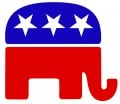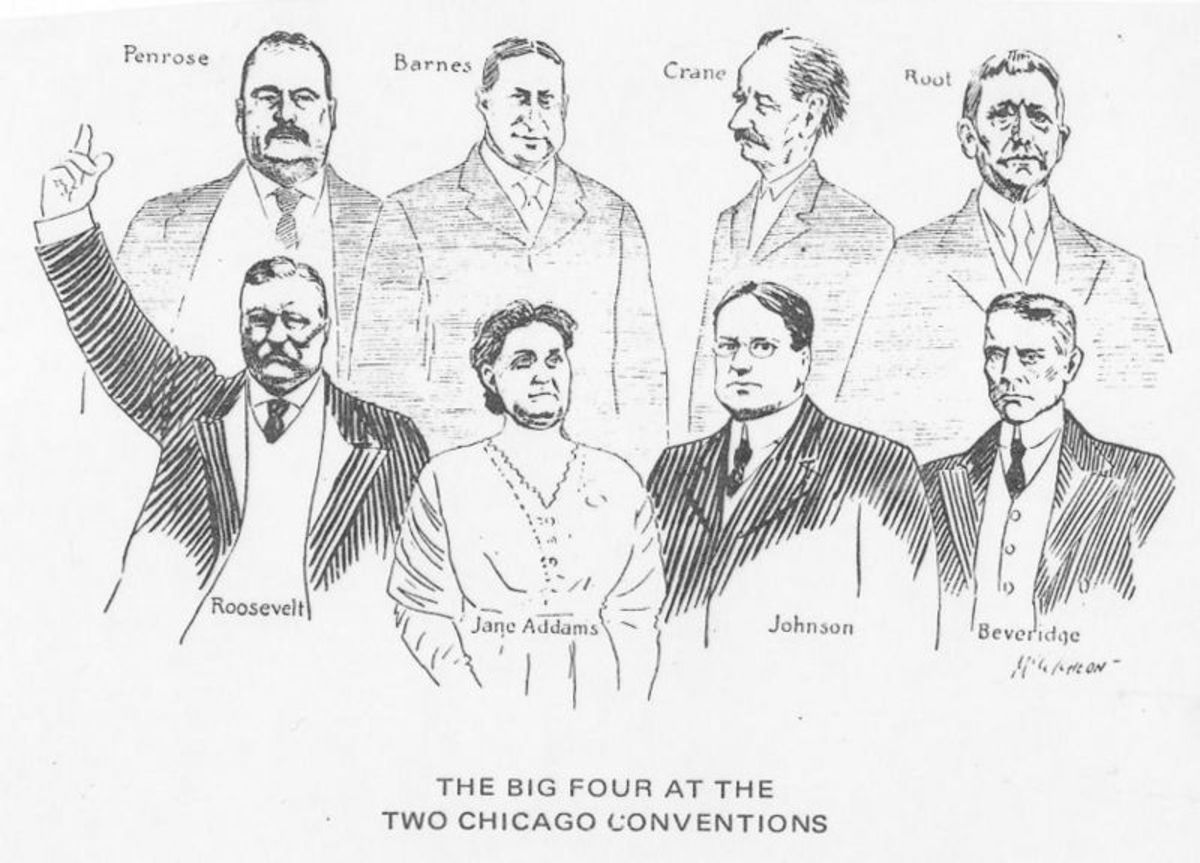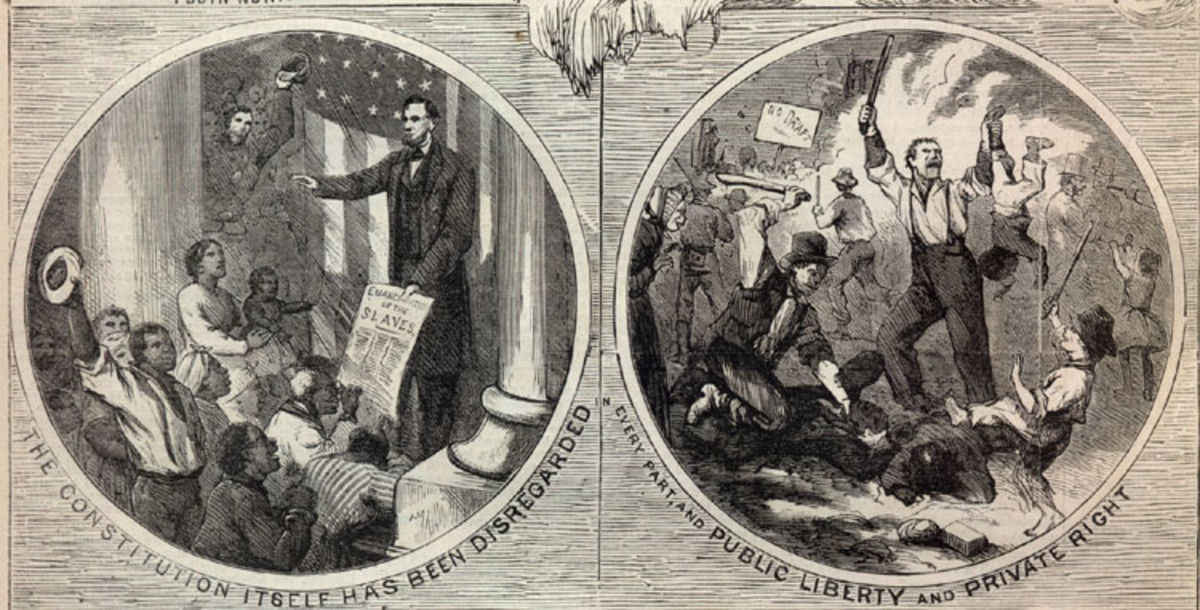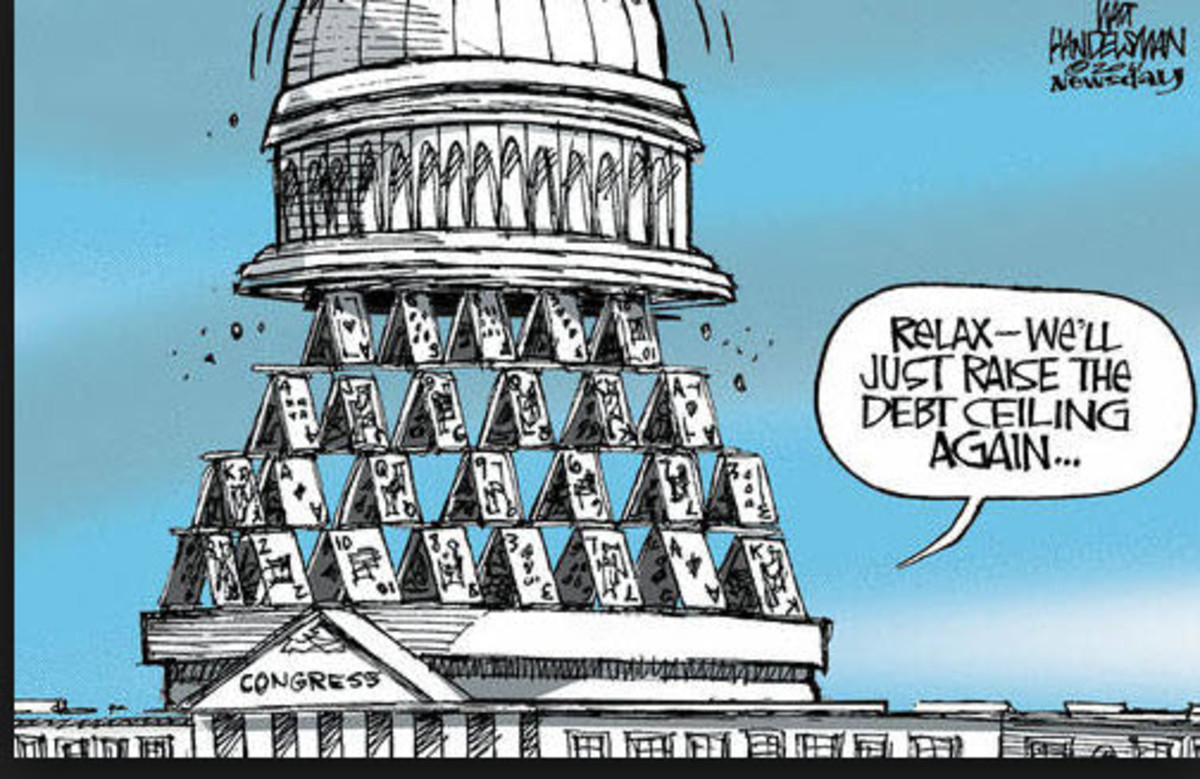GOP's Contemporary Discourse: Against Its Own History?
Republican Party's original platform (1856)
The first Republican national convention met in Music Fund Hall, Philadelphia, in June, 1856, and was called to order by Edwin B. Morgan, later governor of New York. Robert Emmett (NY) as temporary chairman, and Henry S. Lane (Indiana) the permanent president of the convention. David Wilmot (Pennsylvania), reported the platform:
the maintenance of the principles promulgated in the Declaration of Independence and embodied in the Constitution were essential to the preservation of the national republican institutions.
the Constitution, the rights of the States and the Union of the States, should be preserved.
resolved that it was a self-evident truth that all men are endowed with inalienable rights to life, liberty, and the pursuit of happiness, and that the primary and ulterior designs of the Constitution were to secure those rights to all persons within its exclusive jurisdiction.
no person should be deprived of life, liberty or property without due process of law, the duty arose to maintain this provision, of the Constitution against all attempts to violate it for the purpose of establishing slavery in any territory, by positive legislation prohibiting its existence or extension therein
declared against the extension of slavery into the free Territory.
denied the authority of Congress, or of a Territorial legislature, or of any individual or association of individuals, to give legal existence to slavery in any Territory.
"that the Constitution confers upon Congress sovereign powers over the Territories of the United States for their government, and that in the exercise of this power it is both the right and duty of Congress to prohibit in the Territories those twin relics of barbarism, polygamy and slavery."
demanded Kansas admission as a free State.
declared in favor of national internal improvements, national aid for a railway to the Pacific, and for appropriations by Congress for rivers and harbors of a national character required for existing commerce, and that same were authorized by the Constitution.
In its long history of almost 156 years, the Republican National Party (RNC) holds a respectful record of constructive and progressive standpoints, policies and statesmanship. Many of Republican Party's political stances and policies where developed at critical moments in the United States' history. In fact, the genesis of the party, took place in a very contentious period of the modern political history of the nation. When Abraham Lincoln became the President of the US, the nation was bankrupt. For thirty years the US was enduring British economic measures, and was under the control of the Baring and Rothschild-allied New York banks of Astor and Gallatin. Jackson's dismantling of the Bank of the United States, followed by Polk's Independent Treasury Act of 1846, and the decisions of Presidents Van Buren, Tyler, Polk, Pierce, and Buchanan placed the government in a weak position against those banks. In 1857, factories closed, unemployment was widespread, the banks had collapsed, business were in a gridlock, higher and professional education were for the affluent, and the Treasury was empty.
In the original RNC's platform, from 1856, its founding fathers and mothers, straightforwardly declared that the maintenance of the principles promulgated in the Declaration of Independence and embodied in the Constitution were essential to the preservation of the national republican institutions. Therefore, they recognized and subscribed that it was a self-evident truth that all men are endowed with inalienable rights to life, liberty, and the pursuit of happiness. And that the primary and ulterior designs of the Constitution were to secure those rights to all persons within its exclusive jurisdiction.
In that light, the Republican Party, along with the progressive political forces of the nineteenth-century, championed the cause to put a stop to the spread of slavery in the nation and ultimately, outlawed that inhuman system (Thirteenth Amendment). Furthermore, since in Scott v Sandford (1854) the Supreme Court didn't recognize "Negroes" as citizens of the nation and in fact, defined them as chattel, Republicans and other progressive activists pushed for the Fourteenth and Fifteenth amendments of the Federal Constitution. Then, the three Reconstruction Era constitutional amendments, expanded the powers of the Federal government for the sake of broadening democracy. With their political stance, the GOP uphold at least two of their proclaimed aims: to maintain the principles promulgated in the Declaration of Independence and guarantee that the Constitution secures the promise of life, liberty and the pursuit of happiness to all persons.
President Abraham Lincoln's position against the Secession of the Confederacy's states, preserved the Union and built nationalism against sectionalism and individualism. Thus, American nationalist discourse and identity is rooted in the politics of Lincoln's Republican Party, its policies and progressive rhetoric. Even the cherished national holiday "Thanksgiving Day", became a national day of observance in the aftermath of the Civil War.
Besides, the Republican Party either in the Congress or in the presidency, have been behind key legislative actions that have emboldened the role of the Federal government. For instance: the protective tariff system; the Homestead law; the creation and conservation of natural resources and forest reserves; the establishment of a sound currency and the National Bank system, which effected the resumption of specie payments; promoted civil service to a high degree of observance and expanded the creation of public universities.
These are some of the admirable achievements of the Republican National Party, but my intention is not to offer an apologia of the GOP, rather, to articulate a critical reflection on the best of the history of the GOP, and the Republican Party of our days. This the first part of that exercise.
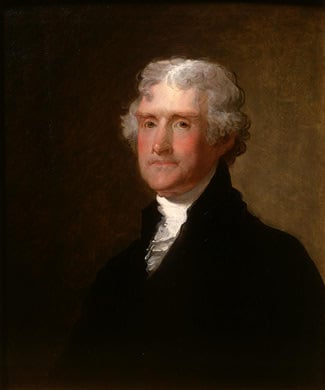
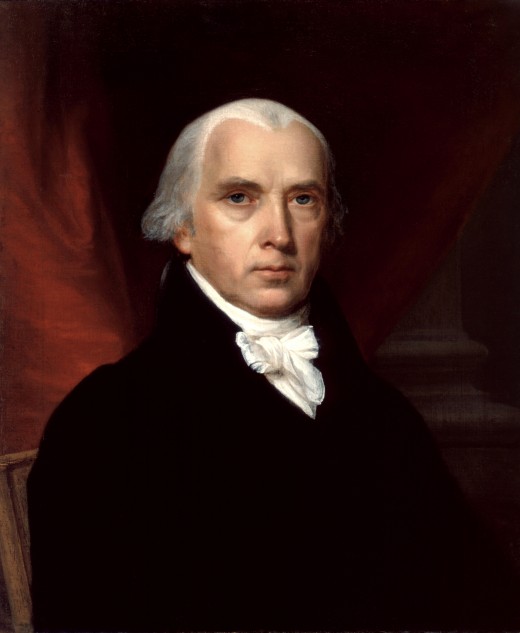
Ideological Roots of the Republican Party
In the mid-1850s the founding members of the GOP choose the name "Republican Party" in part as tribute to Thomas Jefferson and James Madison. That was the name commonly referred to the party they created in 1796. But in our times, conservative forces in the Texas Board of Education (linked to the GOP) managed to erase Thomas Jefferson from a list of figures whose writings inspired revolutions in the late 18th century and during the 19th century.
The memory of Jefferson -one of the main contributors of the US Constitution- was nullified from social studies books, expressly because he coined the term “separation between church and state”, which is one of the foundational and most healthy political principles of the United States. In the Bill of Rights, that principle is organically linked to the freedom of speech. Therefore, and although Jefferson's phrase is not quoted in the Federal Constitution, the document clearly declares that "Congress shall make no law respecting an establishment of religion, or prohibiting the free exercise thereof". Yet, Newt Gingrich, one of the main figures in the GOP, denounced President Obama for running a "secular machine". But, legally, part of the President's job is to run a secular government, so what's the problem there? Besides, the President is the leader of the government, not a pope, bishop, minister, rabbi, imam, and much less a satanic priest.
The political dictum of the separation of church and state in the US Constitution, is not only the crystallization of Enlightenment's ideals, but also a practical approach to the concrete realities of the nation at that time. The US Constitution didn't proclaim a national religion, nor adherence to any particular religious institution, because a mosaic of Christian, non-Christian faiths and non-believers coexisted in the new nation. The institutionalization (or the "jamming down our throats") of a unique faith, could have crippled the development of the new Republic, or even worst, abort the political experiment at birth. Hence, the need of the new State and the commonsense decision of its framers, to guarantee the right to worship or not to all; and so, assumed a "hands-off-religion" approach unlike other Republics before and after the onset of the US.
The people who now resent, loathe and show disdain for the principle of the “separation between church and state”, are denying and renouncing their own rights and freedom, as much are contradicting the foundational ideals of the party they pretend to represent. Even worst, they call themselves nationalists as they stomp over one the basic republican principles of this nation. In their path, they also stride over another principle which states that in a government made up as a Constitutional Republic, the Rule of Law and clearly defined constitutional principles, dictate the administration of government.
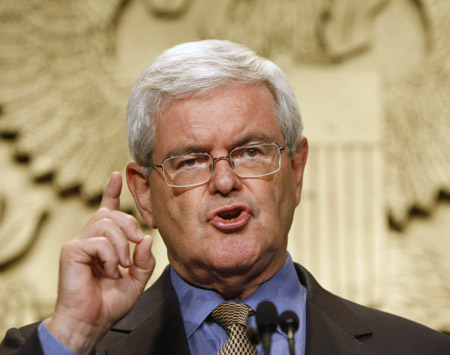

On the other hand, GOP's name, also evoked 1776's republican values of civic virtue and opposition to aristocracy and corruption. Hence, the party created by Jefferson and Madison, favored the interests of the yeoman farmer over merchants, bankers, industrialists, and other bountiful interests.
In our times, Republican leaders oppose to an equal, broad and just access to health care services, mainly because it may hurt the interests of corporations or is against the ideology of freedom of enterprise. Yet the inequalities, inadequacies and "liberties" of the health care system have opened the doors for America’s middle and lower classes' struggle to pay higher premiums, deductibles and co-payments (if they can afford a coverage at all); skyrocketing prices for prescriptions and health insurances; individual, family and small business bankruptcies; deterioration of health and as a consequence, the loss of lives.
In detriment of America's (shrinking) middle class and (increasing) lower classes -and even against common sense- they advocate: huge tax-cuts to the affluent; the deregulation of big business and laissez faire for Wall Street; the leniency of labor laws and consumer protection; and the impairment of worker's and consumer's rights. All of this, while they champion for broader State's intervention over the life of individuals (like with the efforts to ban abortion rights and gay marriages) and defend a pure laissez faire for corporations (which now even have some of the political rights of a citizen).
Clearly, today's GOP political rhetoric and policy, privilege contemporary "merchants" (big consumer chains, insurance companies, etc.), bankers (and investors), industrialists (oil, coal and others) and other bountiful interests (who cover themselves with the mantle of freedom of enterprise and speech). Now they advocate a corporate welfare approach from the government, instead of championing for a government "from the people, by the people and for the people". That's a huge detour from the evoked principles of Jefferson's and Madison's Republican party.
In this light, Mickey Edwards, a former prominent Republican congressman, former national chairman of the American Conservative Union, a founding trustee of the Heritage Foundation, and the author of the book Reclaiming Conservatism: How a Great American Political Movement Got Lost--And How It Can Find Its Way Back (Oxford University Press, 2008), have said:
So-called conservatives, they [sic] have abandoned true American conservatism--which is properly focused on limited (not small) government, individual liberty, and prudent governance--and have instead become the champions of wiretapping, government secrecy, federal deficits, questionable wars, and a nasty kind of politics that even questions the patriotism of those who disagree with their policies.
The Republican Party long stood for the principles at the heart of the American Constitution, including a belief in the wonderful possibilities of self-government (instead of the anti-government rhetoric it has since embraced). It celebrated ideas instead of the rabid anti-intellectualism it has come to cherish. It celebrated diversity (Barry Goldwater argued that there was no such thing as a merely common man) rather than demanding sameness in religion, values, and beliefs. The Republican Party does not need to re-invent itself--it merely needs to remember what it once was.
To be continued...
PLEASE VOTE ON THE POLLS
Do you think the State have or should have the power to regulate Corporations and Big Business?


